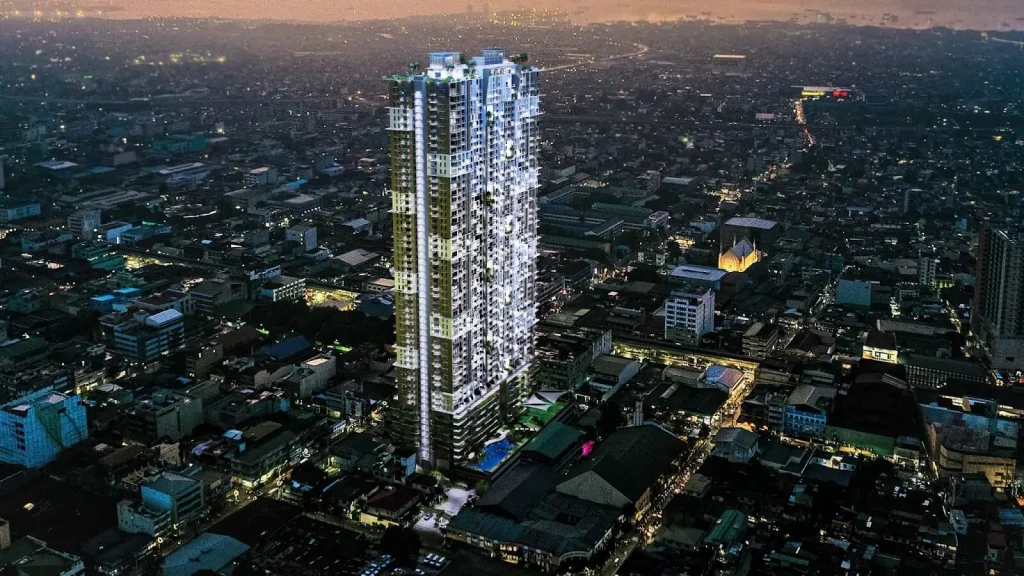Do you want to venture into the condo leasing business but have no idea how? It's not surprising how people are now into leasing their condo units. According to IBIS World, the property management industry in the United States experiences a 4.8% annual growth, attracting investors into converting their investments into profit. Condo renting is also popular here in the Philippines, with almost every condo owner eager to learn all the condo leasing guidelines. So before you hang a “condo for lease” sign, here are the important pointers you need to know about how to lease out your condo unit.
The Basics

Photo courtesy of image4you via Pixabay
First things first, we have to define the basic terms that you'll encounter in the whole condo leasing business. As the owner of the property or the owner of an existing lease on the property, you will be the landlord. The occupier of the property you are about to lease to will be called the tenant. The tenant will be the one paying rent to the landlord. Heads of Terms are what bind the landlord and the tenant together. It is a summary of the agreement between both parties, and this will be used by the lawyers to produce the lease, a legally-binding contract between both parties. Always remember that both the lease and Heads of Terms should comply with the recommendations of the Lease Code.
The Prospecting Hierarchy and How It Works

Photo courtesy of Unsplash via Pixabay
Now that we've covered the basics, it's now time to get some prospects. But wait, you can't just go out there and ask people if they want to live in your condo. Experts have what we call a prospecting hierarchy that segments different prospects and identifies the best tactics in order to reach them. At the tertiary level, broadcast tactics such as advertising, online listings, and network exposure should be used. The secondary level requires the use of direct marketing such as flyers, snail and electronic mails, and broker contacts. Lastly, the primary level utilizes personal contacts such as phone calls and personal tours. These tactics ensure that you'll get the best possible prospects around your area.
Choosing the Right Broker

Photo courtesy of DT via Pixabay
Of course, you can always choose to do this condo leasing business alone, that is if your end goal is to acquire incompetent tenants and lose all your money. You will always need the help of a professional broker if you want to have a better outcome. But how do you do this? Do you just ask the help of a lawyer and expect him to do magic? Of course not. Many brokers out there are, as they say, all talk and no game. Before you choose your broker, you have to make sure that he or she are willing go the distance. You can try asking your potential broker about his or her specialization. Is your potential broker an expert in representing owners? Does he or she know how to draw prospects into your property? Is your broker experienced or is this his or her first rodeo? Does he or she have hundreds of other clients that also need attention? A competent broker will definitely provide you a better guide to leasing out your condo.
Getting One Step Ahead of Your Broker

Photo courtesy of freephotocc via Pixabay
Having a competent broker is a good thing, but that doesn't mean you should let your broker do all the work. Remember, you should partner with your broker to get the best results. You should also be wiser when it comes to strategizing. Does your broker have a strategy? Or does he or she simply recycle a plan from his or her previous clients? You and your broker should form an approach tailored specifically to the unique opportunities and challenges contained in your property. Your broker should know which type of tenants pay the higher prices, the best marketing tactics to appeal to your potential tenants, and possible opportunities you can take advantage of. Your broker should be skilled enough to provide you with the best scenarios for your venture.
The Ultimate Selling Point of Each Property

Photo courtesy of Mariusz Kluzniak via Flickr, Creative Commons
What's the story of your condo? It may seem like an unrelated question, but this aspect can actually be the best selling point of any condo in the market. You have to make sure that your condo unit stands out from the rest and you'll have that edge by having a story. Don't worry, a story doesn't have to be a complicated legend of some sort. The story should capitalize on a special feature or theme of your condo. A great example is the tropical and neo-Asian theme of DMCI properties. Perhaps your condo rests at the heart of the country's fashion hub? Or maybe your condo is accessible to the most premier tech shops today? From special amenities to wonderful views, use your condo's environment to your own advantage.
How a Building Tells a Story

Photo courtesy of Roberto Trombetta via Flickr, Creative Commons
If you're having a hard time creating a story for your condo, don't give up just yet. Every condo should at least have a story to attract potential tenants. A common angle is the transportation focus, in which a condo is being pitched as a home for the everyday commuter and driver. If your condo is located near transits and provides a sizable parking space, then this should be the story for you. Another good angle you can use is the green focus, in which your condo is portrayed as an environment-friendly haven. If you are leasing a large condo unit, you may want to have the family-focused angle, which is targeted to starting families. Other angles include lifestyle focus, which targets health junkies, and technology focus for all the techies out there. Feel free to find the right angles for your DMCI condo.
Making the Transaction Process Successful

Photo courtesy of janeb13 via Pixabay
You have a business plan, you have a broker, you have your story. How exactly do we get a successful transaction? A common leasing guide will tell you a successful transaction has four stages. The first one is Awareness, in which the client is aware that your condo unit is available for business. The next stage is Understanding, which happens once the potential tenant sees value in your condo for his or her specific needs. From here, Interaction will happen, in which the client will tour your condo and does space planning. The final stage, Transaction, when the landlord and the potential tenant will negotiate to reach an agreement. Sounds simple enough, doesn't it?
The Importance of Choosing the Right Tenants

Photo courtesy of stevepb via Pixabay
If you think the whole process of leasing your condo unit is taxing, then you are bound to commit the most common yet fatal mistakes of landlords. A classic example is failing to do a thorough background check of potential tenants. Some tenants renting in the Philippines would present fake identifications to boost their chances of getting your condo unit, and if you're someone who did little research about your tenants, you'll probably forget to ask about your tenant's source of income and for a substantial security deposit. Another example is failing to craft solid agreement terms and trusting your tenant's friendly demeanor. Examine your potential tenants' backgrounds thoroughly with the help of your broker and make sure you don't choose incompatible tenants.
Why Owner-Tenant Relationships Fall Apart

Photo courtesy of Freeimages9 via Pixabay
Communication, communication, communication—a mantra you should always live by in life and in business. Communication is also an important aspect in maintaining a good relationship with your tenants. Let your tenants know that you are one step ahead when it comes to maintaining your property. Once a problem arises within your unit and you’re not able to communicate it to your tenants, you will always be the one to blame. As much as possible, create a personal connection with your tenants. You can also seek the help of property management and maintenance services to help attend to any future tenant concerns.
The Biggest Deal Breaker for Renters

Photo courtesy of ehrendreich via Pixabay
Small things matter. If you're someone who always looks at the bigger picture, you might want to zoom in to check the details. Tenants who are looking for condos in Metro Manila are always turned off by the smallest of things—something as small as flickering lights and dirty corners would definitely change their minds about renting your condo. Make sure your common areas are clean and free from small debris. Check all the electrical wirings in your unit to prevent flickering lights and other dysfunctional appliances. Be sure to take care of the smallest things before you present your unit to potential tenants.
Why Retention is More Important than Acquisition

Photo courtesy of FlashBuddy via Pixabay
It's fair to say that tenants are replaceable. After all, you can always look for prospects somewhere else. This is why lessors often slack off in terms of addressing their tenants concerns. These lessors are the ones who don't succeed in the condo leasing business because they don't know the value of retention. Re-leasing and refurbishing your condo unit will cost you money, and if you find yourself doing this on a regular basis, you will realize that you're losing money more than you're earning. Exert more effort in making your current tenants comfortable to convince them to stay longer in your condo. After all, their comfort is your profit.
Making your condo a source of income isn't exactly a walk in the park. You must be willing to study the trends of the industry and develop a business mindset in order to be successful. It shouldn't be hard because your business is making people feel at home, and failing to do so says a lot about who you are as a person. Remember to be smart with your choices and be graceful to your clients.










